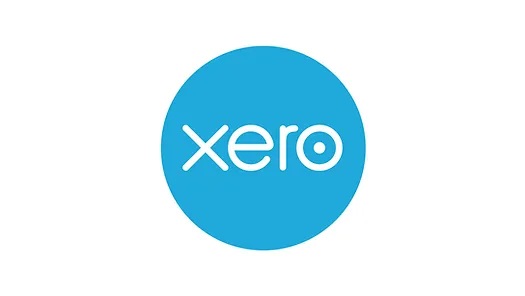Aside from technology, there are always changes in regulations regarding competency as an accountant or bookkeeper. To keep up with these and other changes, such as the emerging forces of cloud accounting and cross-collaboration, an accountant or bookkeeper needs to be on their toes and capitalise on their professional development to survive.
In accordance with the Tax Practitioners Board’s (TPB), to maintain your BAS agent registration, you must complete an annual declaration to demonstrate and provide assurance to the TPB that you meet the ongoing registration requirements, including:
- having professional indemnity insurance cover
- undertaking continuing professional education
- satisfying fit and proper requirements
- completing your personal tax obligations.
For more information on continuing professional education for BAS agents, download the TPB Continuing professional development for BAS agents factsheet.
The number of continuing professional education (CPE) hours you should complete depends on your registration type. For a standard three-year registration period for BAS agents, this is generally a minimum of 45 hours of CPE, with a minimum of 5 hours each year. If your registration period is other than three years, you should complete CPE on a pro-rata basis.
The TPB gives individuals the freedom to choose the CPE activities they undertake. However, these must be conducted by individuals or groups with the appropriate qualifications in the area where they deliver training.
The TPB also lists CPE activities that are considered appropriate under their policy, which include:
- structured in-house training, conferences, discussion groups and webinars
- tertiary courses and educational activities, including distance learning
- up to 25% of technical or professional reading.
The TPB recognises training offered through professional associations, such as the Institute of Certified Bookkeepers (ICB) and the Institute of Public Accountants (IPA). Joining professional associations can benefit you as they often provide their members access to TPB recognised CPE seminars, lectures, and workshops that count towards your CPE quota.
A professional development plan (PDP) lists actionable steps for achieving your career goals. It helps you identify how you can reach your career aspirations, such as earning a new certification or finding a mentor who can advise you. Defining your goals in a PDP will help you identify your career goals and guide you toward reaching them.

Every time you hit significant milestones, you should update your PDP, which should serve as a constant reference or touchstone. By regularly revising your PDP, you may create new objectives that will help you advance both professionally and personally.
Follow these five steps to create a professional development plan.
-
Complete a self-assessment
A self-assessment is an evaluation of your professional interests, knowledge and skills. Creating a self-assessment allows you to examine your current position related to your career goals. When you determine your skills and interests, you can identify areas in which you can improve to achieve your goals.
It can be helpful to identify your transferable skills. Many employers seek transferable skills, such as good communication, teamwork or leadership. As workplaces become increasingly dependent on computer programs, technical skills are essential.
-
Goals
The goals you set in your professional development plan should be SMART (Specific, Measurable, Achievable, Relevant and Timely). Using SMART goals will make it trackable and easier to update your PDP when you complete important milestones.
Structure your goals in a way that makes them easy to achieve by completing small steps. It is helpful to list goals in order of priority, with the highest first, so you can quickly identify them. It can also help to categorise goals as short, mid or long-term so you can develop more detailed steps to achieve each one:
- Short-term is within the next year
- Mid-term is within the next one to two years
- Long-term is within the next three to five years.
-
Strategies
Your professional development plan strategies define how you will achieve your goals. You should list a variety of approaches, including experiential learning (learning through doing), exposure (learning from others), education and reflection.
As a general rule, the majority of your strategies should be experiential. This gives you invaluable hands-on experience when developing new skills. For example, a person who wants to be a veterinarian could volunteer at an animal shelter as an experiential strategy for learning more about working with animals.
Here are some things you should consider when developing your strategy:
- If the goal involves a career change, think about what education or certifications you need and how long they would take to obtain. Research possible education and certification courses you can take to work toward this goal.
- If you need advice, consider contacting a professional contact and establishing a mentor-mentee relationship. A mentor could be an experienced coworker, previous employer or teacher.
- If you need to build your skill set, you might have some opportunities at your current job. You can ask your manager for more responsibilities that will help you gain the needed skills.
-
Resources
Resources are places where you can find professional growth. They might provide workshops or networking opportunities, and they have the potential to enhance your career path greatly.
Some professional resources include:
- Continuing education institutions
These institutions offer programs, conferences and courses that help you learn more about specific topics. Many continuing education courses can lead to a certification or degree, which will show you have knowledge of a field or can perform a process. For example, project managers can earn a Project Management Professional certification that shows they can successfully execute a plan using different methods. You may be able to attend online courses or go to a local college or school for classes. - Professional associations
You can find both local and national associations that offer memberships. Membership in an association helps you connect with like-minded individuals and build your professional network. When you grow your professional network, you can increase your opportunities to advance within your career. - Webinars
Some professionals and businesses host webinars where they give presentations on a specific topic, such as evaluating industry trends or teaching a particular skill. For example, a programmer might offer a webinar on front-end development foundations. Since webinars are internet-based, you can attend one from anywhere. You can find a variety of webinars based on your PDP.
When you’re developing the resources section of your PDP, be specific. These resources might have tuition, fees or time requirements. Having a complete understanding of what is available to you is crucial.
- Continuing education institutions
-
Timelines
Your professional development plan should always be a work in progress. It should grow and change over time and reflect where you currently stand in your professional life. Some good times to update your professional development plan include reaching milestones, updating strategies or changing goals.

A bookkeeper typically processes and records financial transactions for a business, including monitoring accounts received and paying bills on behalf of the company. Bookkeepers may also be required to prepare Business Activity Statements (BAS on behalf of a business. You must be registered as a BAS agent with the Tax Practitioners Board (TPB) to do this. While this is not essential to your bookkeeping career to be registered as a BAS agent, having your BAS agent qualification can broaden your career opportunities.
Requirements for BAS registration
- You must be at least 18 years of age
- You must be a fit and proper person
- You must satisfy the qualification and experience requirements
- You must maintain, or will be able to maintain, professional indemnity insurance cover that meets TPB requirements
- Complete an online application and provide supporting documents
Qualifications and experience for BAS agents
To become a registered BAS agent, individual applicants must satisfy specific qualifications and experience requirements, which are set out in the Tax Agent Services Regulations 2009 (TASR).
Summary of qualifications and experience requirements
You may apply to register as a BAS agent through one of two options outlined in the TASR (item 101 or 102), depending on your experience. The following table summarises the requirements under these items, covering:
- Primary qualification
- GST/BAS course
- Relevant experience
| Primary qualification | Board approved course - GST/BAS taxation principles | Voting member of a recognised BAS or tax agent association | Relevant experience | |
|---|---|---|---|---|
| Tertiary qualifications in accountancy | At least Certificate IV Financial Services in bookkeeping or accounting | ✔ | ✘ | 1,400 hours in past 4 years |
| Membership of a professional association | At least Certificate IV Financial Services in bookkeeping or accounting | ✔ | ✘ | 1,000 hours in past 4 years |
The requirements under the two items shown in the image above are detailed below:
Item 101 - Accounting qualifications
- A Certificate IV Financial Services (or a higher award) in bookkeeping or accounting from a registered training organisation or an equivalent institution
- Board approved course in basic GST/BAS taxation principles (GST/BAS course)
- 1,400 hours of relevant experience in the past four years.
Item 102 - Membership of professional association
- A Certificate IV Financial Services (or a higher award) in bookkeeping or accounting from a registered training organisation or an equivalent institution
- Board approved course in basic GST/BAS taxation principles (GST/BAS course)
- A voting member of a recognised BAS or tax agent association
- 1,000 hours of relevant experience in the past four years.
Primary qualification
You must have a primary academic qualification in bookkeeping or accounting at a Certificate IV level or a higher award (for example, a diploma, advanced diploma or degree). The qualification must have been obtained from a registered training organisation or an equivalent institution.
GST/BAS course
You must also have completed a Board approved course in basic GST/BAS taxation principles (also known as GST/BAS course). This course may be included in your primary qualification.
Using the TPB Qualifications check, you can check if the Board has approved courses and units.
Recognition of prior learning
The TPB will accept a course in basic GST/BAS taxation principles obtained through a process of recognition of prior learning (RPL), provided it satisfies their assessment requirements.
Relevant experience
To learn more about the amount and types of relevant experience individual applicants must demonstrate when they apply to register, visit Relevant experience for BAS agents.
Conditional registration
The Board may impose a condition on your registration. A condition placed on your registration will limit the scope of services you can provide. This allows people with relevant experience in particular areas of taxation law to be eligible for registration (provided all other registration criteria are met).
Continuing professional education
Registered BAS agents must undertake continuing professional education (CPE) that meets our requirements to be eligible to renew their registration.
For a summary of our CPE requirements for registered BAS agents, please visit Continuing professional education for BAS agents.
In this video, Julie from the TPB takes you through registering as a BAS agent.
Australian Business Number
If you are conducting a business turning over more than $75,000 a year, you’ll need to register for an Australian Business Number. Other businesses can also choose to withhold money for tax from payments to you if you don’t have an ABN of your own.
Insurance
Professional Indemnity Insurance indemnifies professional bookkeepers from losses suffered by their clients or other third parties due to negligence, mistakes, error or failure on the bookkeeper’s part.
Professional Indemnity Insurance also pays the legal costs of defending a legal case a client makes against you. It is an essential requirement of BAS Agent registration.
Accountants
Accountants measure and manage financial information that helps investors, managers, business owners, and other individuals make sound financial decisions. An accountant may keep track of business transactions, monitor and report on a company's financial performance and prepare financial statements. While not mandatory, most accountants hold a minimum of a bachelor's degree in accounting or a related field.
In Australia, three professional bodies regulate the accounting industry. These are:
- The Institute of Charted Accountants of Australia (ICAA)
- The Institute of Public Accountants (IPA)
- CPA Australia (CPA)
To qualify for entry into the CPA or ICAA, you will need a Bachelor of Accounting or a similar degree, such as a Bachelor of Business (Majoring in Accounting).
To enter the IPA, you’ll need an FNS50222 Diploma of Accounting.
The differences between CA and the CPA
When it comes to separating the two qualifications, there are some distinct differences.
A Chartered Accountant qualification is a good choice if you would like to specialise in a particular technical function. It can help you move into a financial controller or CFO role later in your career. The CA course content is geared heavily toward auditing and tax matters from a technical perspective.
Accounting graduates wanting a broader focus on more varied accounting skills, such as costing, production, marketing and planning, should opt for a CPA. This can lead to a career path in more management or innovative sectors of a business.
FNS40222 Certificate IV in Accounting & Bookkeeping
The Certificate IV in Accounting reflects the role of individuals in the accounting and bookkeeping industry, including business activity statement (BAS) agents and contract bookkeepers. Those employees perform bookkeeping tasks for organisations in various sectors. It includes preparing and lodging business and instalment activity statements, data processing, monthly reconciliations, preparing budgets, preparing reports on financial performance and the business position, preparing end-of-year adjustments, and finalising financial records after year-end. Dealing with the Commissioner of Taxation on behalf of a taxpayer about activity statements and other lodgement matters is also a vital component of this qualification's role. Individuals in these roles apply theoretical and specialist skills and knowledge to work autonomously and exercise judgement in completing routine and non-routine activities.
This qualification will prepare you for a Bookkeeper or Accounting Support Officer role and is a significant first step toward becoming an accountant.
FNS50222 Diploma of Accounting
The Diploma of Accounting is more advanced than Certificate IV-level courses and will equip you with higher-level skills. This qualification reflects accounting job roles in financial services and other industries, including tax agents, accounts payable and accounts receivable officers, payroll service providers, and employees performing various accounting tasks for organisations in multiple industries. Individuals in these roles apply solutions to a range of often complex problems and analyse and evaluate information from various sources. They use initiative to plan, coordinate and evaluate their work and provide guidance to others within defined guidelines.
This is a significant first step to a serious accounting career and will equip you with the qualifications to become an Assistant Accountant or take on a supervisory role in the finance sector.
FNS60222 - Advanced Diploma of Accounting
This qualification reflects the role of individuals working in accounting and seeking professional recognition, including tax agents, accounts managers and business analysts, and employees performing various accounts management tasks for organisations in various industries. At this level, individuals are expected to apply theoretical and technical skills in a range of situations and to display initiative and judgement in planning activities. They have autonomy in performing complex operations and can be responsible for planning, coordinating and evaluating the work of others within broad parameters.
An advanced diploma focuses on the practical skills and technical expertise you need to work in accounting. Depending on your advanced diploma, there may be opportunities to move into a bachelor's degree.

Professional Development
In today's demanding employment environment, employees must complete continuing professional development (CPD) to ensure they have the knowledge and skills to offer clients up-to-date, practical advice and meet all regulatory requirements and standards. This is particularly true of the CPD requirements in the financial services sector described below.
- The Institute of Public Accountants (IPA)
- To explore professional development opportunities available through IPA go to the IPA website
- CPA Australia
- To explore professional development opportunities available through CA Australia go to the CPA Australia website
- Institute of Chartered Accountants in Australia
- To explore professional development opportunities available through CA Australia, go to the CA Website
- Association of Accounting Technicians Australia (AAT)
- To explore professional development opportunities available through AAT, go to the AAT website
- The Institute of Certified Bookkeepers
- To explore professional development opportunities available through the ICB, go to the ICB Website
Refer to these websites to see what the minimum level of qualification & experience is required for membership.
All associations require their members to have ongoing training to make sure their skills are current. Regularly check these websites to see if they offer any professional development training courses that suit your needs.
The Tax Practitioners Board has a list of registered BAS Agent Associations. The Board can accredit professional associations so that the professional qualifications and experience of their members are recognised for registration purposes.
It is well worth your while to join one of these industry associations.
Other Forms of Professional Development
- Free ATO seminars in conjunction with local business chambers
- Short courses to develop skills such as leadership and management skills
- Short courses to update your knowledge of legislative changes
- Daily reading of financial newspapers such as the Australian Financial Review
- Websites such as www.moneymanagement.com.au
- Industry journals and magazines such as Australian Investor and Business Review Weekly

Xero Professional Development
Xero offers a range of professional development opportunities for bookkeepers and accountants. These opportunities are designed to help professionals stay updated on the latest features, improve their skills, and enhance their understanding of how to use Xero to its full potential.
Professional development opportunities offered by Xero:
- Help Articles and Guides - Xero Central provides a comprehensive library of help articles and guides covering various features and functionalities of Xero.
- Community Forums - Users can engage with other Xero users, ask questions, share experiences, and learn from the community.
- Online Courses - Xero Central also offers a variety of online courses ranging from beginner to advanced levels. These courses cover topics such as Xero basics, advanced reporting, payroll, and more.
- Webinars - Regular live and on-demand webinars are available, covering new features, best practices, and industry trends.
- Certification Programs - Xero offers certification programs for bookkeepers and accountants, including Xero Advisor Certification and Xero Payroll Certification. These programs provide in-depth training and validate your expertise in using Xero.
- Xero Roadshows - These are events held in various locations where Xero experts present the latest updates, upcoming features, and best practices. They provide an opportunity to network with other professionals and learn directly from Xero staff.
- Xerocon - Xerocon is Xero’s annual conference that brings together accounting and bookkeeping professionals from around the world. It features keynote speakers, breakout sessions, and networking opportunities.
- Xero Partner Program - This program provides resources and support for accounting and bookkeeping firms. Benefits include access to marketing materials, dedicated account managers, and exclusive training sessions.
- Xero Partner HQ - A platform within Xero Central that offers tools and resources to help partners grow their practice and better serve their clients.
- Xero Practice Manager - Xero offers tools like Xero Practice Manager (XPM) to help bookkeepers and accountants manage their practices more efficiently. Training and support are available to help users get the most out of these tools.
- Xero Workpapers - Training on using Xero Workpapers, a tool for managing client workpapers and ensuring accuracy in financial reporting.
- Regular Updates - Xero continuously updates its certification programs to reflect the latest features and industry best practices, ensuring that certified professionals stay current.
- Continuing Education - Opportunities for continuing education credits are available through various courses and webinars, helping professionals meet their ongoing education requirements.
By taking advantage of these professional development opportunities, bookkeepers and accountants can stay ahead of industry trends, enhance their skills, and provide better service to their clients using Xero.
Activity: Maintaining currency
- Use the template to develop a professional development plan that meets the TPB continuing professional education requirements for a standard 3-year registration period.
